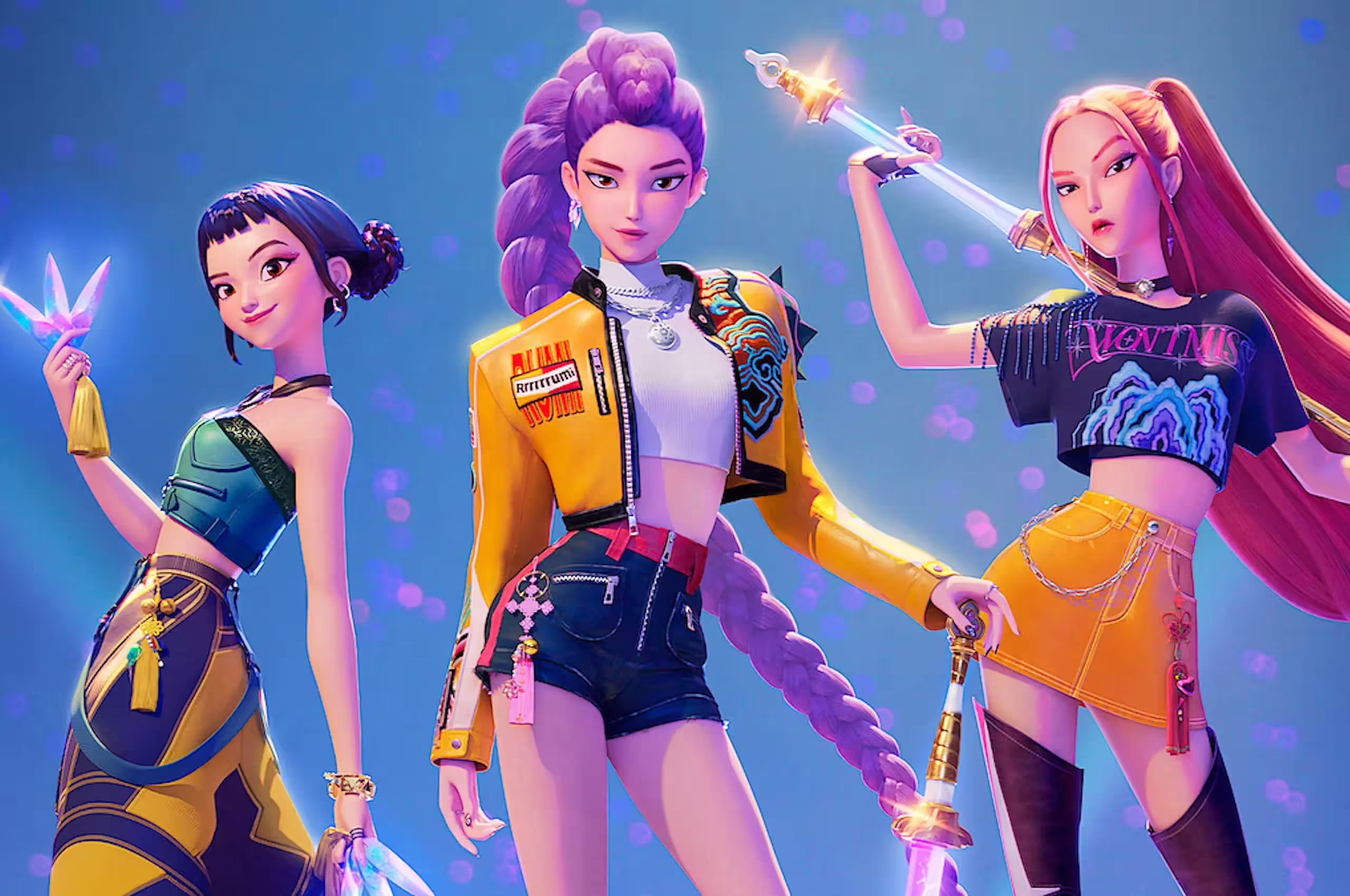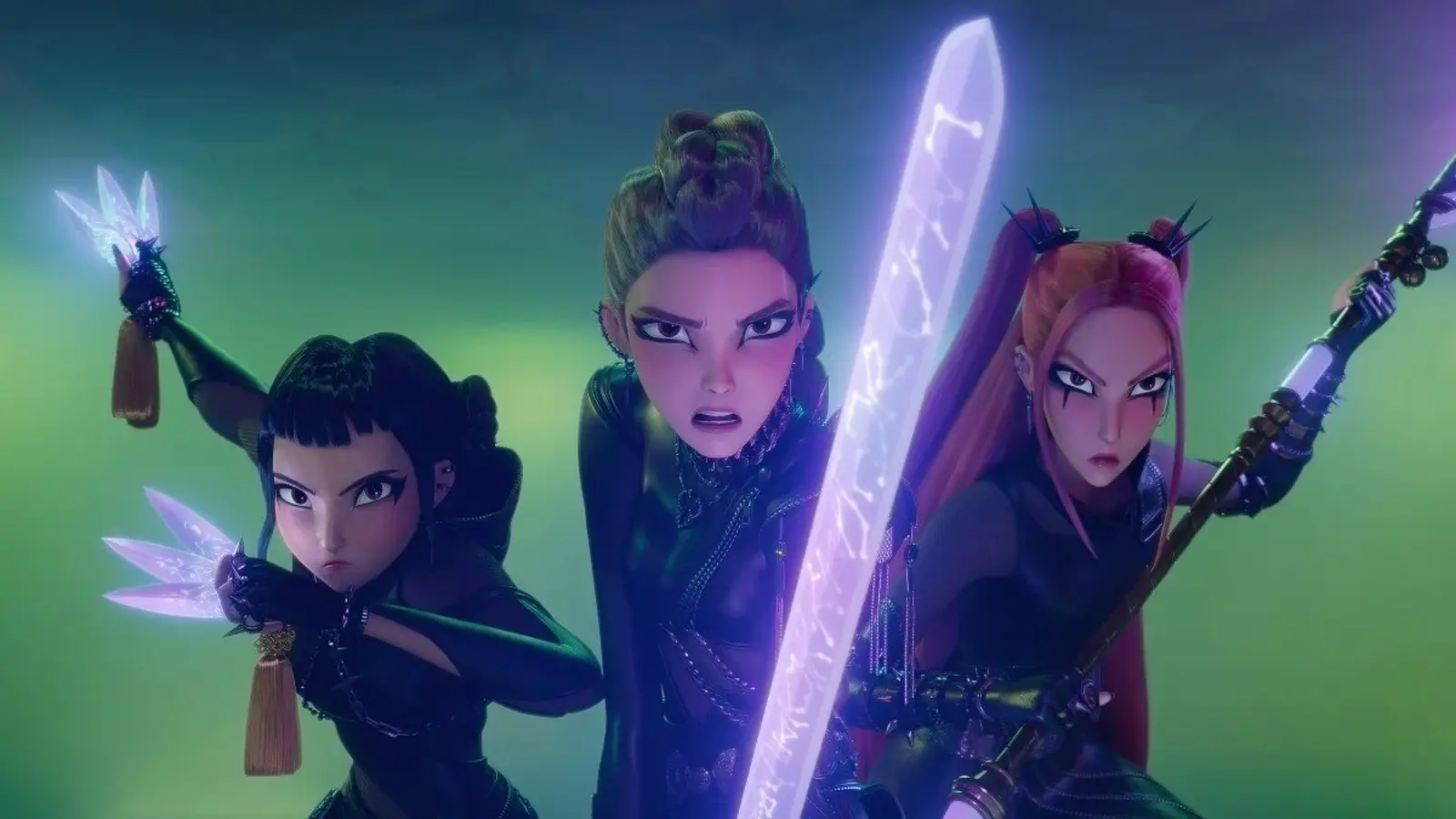6 Minutes
Netflix’s unexpected box-office milestone
In a quiet end-of-summer weekend typically ceded to specialty distributors, Netflix notch ed an unprecedented achievement: its first No. 1 box-office finish, driven by Sony Pictures Animation’s original animated action musical KPop Demon Hunters. The film — already a streaming phenomenon with roughly 210 million views and counting — opened in a two-day limited theatrical run and is estimated to have earned about $18–20 million from roughly 1,700 theaters, narrowly topping Warner Bros./New Line’s Weapons.
From stream to silver screen
Netflix has long experimented with selective theatrical rides for prestige or event films (think Rian Johnson’s Glass Onion). The difference with KPop Demon Hunters is scale and cultural momentum: a project born for the streaming age that translated its online buzz into a surprisingly strong box-office showing. As with other streamer theatrical forays, Netflix did not report official grosses, leaving industry trackers to estimate the haul.
Comparisons and context: why this weekend matters
To put the performance in perspective: KPop Demon Hunters’ two-day limited run nearly matched the Fri.–Sun. openings of recent studio animations such as The Bad Guys 2 ($22M) and Elio ($20.8M). That’s notable in a summer that — outside pandemic years — looks set to be the first since 1997 without an animated title breaking $100 million domestically. Had the movie remained a traditional-wide theatrical release, some analysts speculate it might have crossed that mark; instead, its streaming-first life arguably turbocharged its pop-culture reach while also creating that tantalizing Hollywood “what if.”
Box-office ripple effects
While KPop Demon Hunters captured headlines, the rest of the chart was driven by holdovers hitting major milestones. Weapons crossed $100 million domestically in its third weekend, extending Warner’s strong summer run. Disney’s Freaky Friday remains a solid family performer, Marvel’s The Fantastic Four: First Steps continues its global climb, and The Bad Guys 2 holds steady. Specialty releases like Focus Features’ Ethan Coen dark comedy Honey Don’t! and A24’s English-dubbed release of China’s blockbuster Ne Zha 2 found modest audiences, reflecting an appetite for varied cinema even as tentpoles dominate.

Industry insights: streaming-first, theater-second
The KPop Demon Hunters case highlights an evolving strategy: streaming platforms can use short theatrical windows to amplify a film’s cultural cachet and attract the cinephile crowd while leaving most viewing to subscription audiences. Sony reportedly made a profitable sale to Netflix — a detail that fuels debate about how much theatrical revenue was left on the table versus how much brand and viewership Netflix gained. Studios and distributors are watching closely: limited engagements can create scarcity-driven demand, but they also raise questions about revenue sharing and the long-term health of theatrical exhibition.
Fan reaction and cultural impact
KPop Demon Hunters benefited from the global appeal of K-pop aesthetics, high-energy action choreography, and a soundtrack that went viral on social platforms. Fans turned the movie into a social-media event, with cosplay, fan edits, and playlist-centric viewing that felt more like a cultural moment than a simple release. That grassroots enthusiasm mirrors prior K-pop related successes and suggests a model where music, fandom, and animation amplify each other.
Critical takeaways and a specialist’s voice
Not all outcomes were rosy: some observers worry that selling a promising original animation to streaming can dampen theatrical grosses and change the risk calculus for future original projects. Others argue the exposure and long-term audience building afforded by a streaming platform can be more valuable than a single wide-opening weekend.
“This weekend should be read as a cultural win as much as a box-office curiosity,” says film historian Lara Mendes. “Netflix didn’t just buy a movie — it bought a moment. The result challenges entrenched assumptions about how and where event films should live in 2025.”
Trivia and behind-the-scenes notes
• Industry reports suggest Netflix paid a fee that left Sony with a reported $20 million profit on the deal.
• KPop Demon Hunters’ choreography and soundtrack were crafted in collaboration with established K-pop producers, which helped the film spread on playlists before its theatrical run.
• Ne Zha 2, released in the U.S. in an English-dubbed format, remains this year’s global animation juggernaut with over $2 billion, almost entirely from its home market — a reminder that international box-office shapes the animation economy.
Conclusion: a new chapter for event cinema
KPop Demon Hunters’ brief theatrical triumph is more than a quirky headline — it’s a signpost. Streaming platforms can effectively turn cultural momentum into box-office gold with surgical theatrical releases, but the trade-offs for studios and theaters remain unresolved. For audiences, the win is cinematic variety: a world where animation, music, fandom, and platform strategy converge to create unexpected moments. Whether this becomes a blueprint or a one-off will depend on future releases, marketing muscle, and whether theaters and streamers can find sustainable ways to share the spoils.
Source: thewrap



Leave a Comment